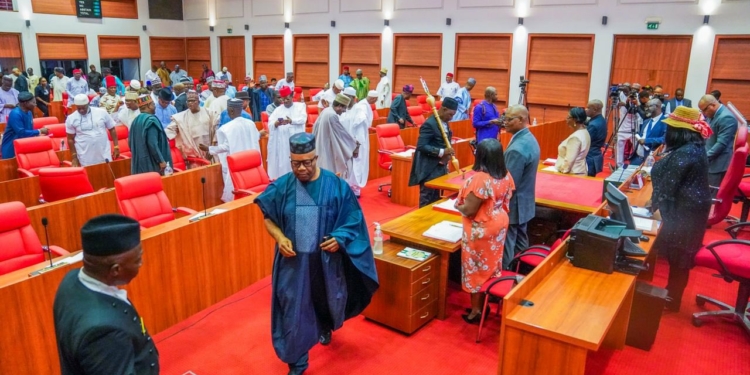- The Nigerian Senate advanced a Bill to establish the Health Infrastructure Development Agency to enhance healthcare infrastructure nationwide
- The Bill, sponsored by Senator Osita Ngwu, seeks to modernize facilities via public-private partnerships and improve healthcare access and quality
During its plenary session on Thursday, the Nigerian Senate progressed a bill through its second reading, which seeks to establish the Health Infrastructure Development Agency. This proposed legislation aims to create a comprehensive framework for planning, financing, constructing, maintaining, and regulating healthcare infrastructure across Nigeria.
Titled “Bill for an Act to Establish Health Infrastructure Development Agency,” the legislation is sponsored by Senator Osita Ngwu, the Minority Whip representing Enugu West senatorial district. Leading the debate, Senator Ngwu explained that the Bill aims to promote developing and improving healthcare infrastructure, thereby enhancing healthcare access, quality, and delivery throughout the country.
Senator Ngwu emphasized that the Bill seeks to modernize healthcare facilities by leveraging public-private partnerships (PPPs) for sustainable infrastructure development. He lamented the challenges facing Nigeria’s healthcare industry, including outbound medical tourism, inadequate medical personnel, and deteriorating medical infrastructure.
Referencing a report by the International Trade Administration, Senator Ngwu noted that Nigeria’s healthcare system is underdeveloped, lacking modern medical facilities, and has some of the worst healthcare indicators in Africa. He recalled the government’s approval of the second National Strategic Health Development Plan (2018-2020), which aimed to improve the availability and functionality of health infrastructure necessary for optimal service delivery at all levels.
The proposed Bill is intended to reverse the trend of Nigerians seeking medical treatment abroad and position Nigeria as a medical destination hub within a short timeframe. Senator Ngwu stated, “Healthcare infrastructure constitutes a major component of the structural quality of a health system. It is a key pillar that supports promoting improved medical care and wellbeing standards.”
The Bill outlines the responsibilities and powers of a Board, emphasizing collaboration and coordination among stakeholders. It also provides for the issuance of regulations and guidelines to support its effective implementation. The proposed Agency would administer the framework for policy direction, standards, guidelines, efficient construction processes, and quality control measures. It would ensure that healthcare facilities are designed, constructed, and maintained to meet the highest standards, supporting the delivery of quality healthcare services.
The Bill also emphasizes the importance of rural healthcare access and outlines strategies to address healthcare disparities in rural areas. By implementing these strategies, Nigeria can enhance healthcare access and delivery in rural communities, improving health outcomes and reducing disparities. Additionally, the Bill makes provisions for public-private partnerships (PPPs). He outlines the types of PPP models that can be employed to leverage the expertise and resources of the private sector.
After the debate, the Bill was put to a voice vote by the Senate president, Senator Godswill Akpabio, who presided over the session. It was passed and referred to the Committee on Health Institutions for further consideration.










Discussion about this post